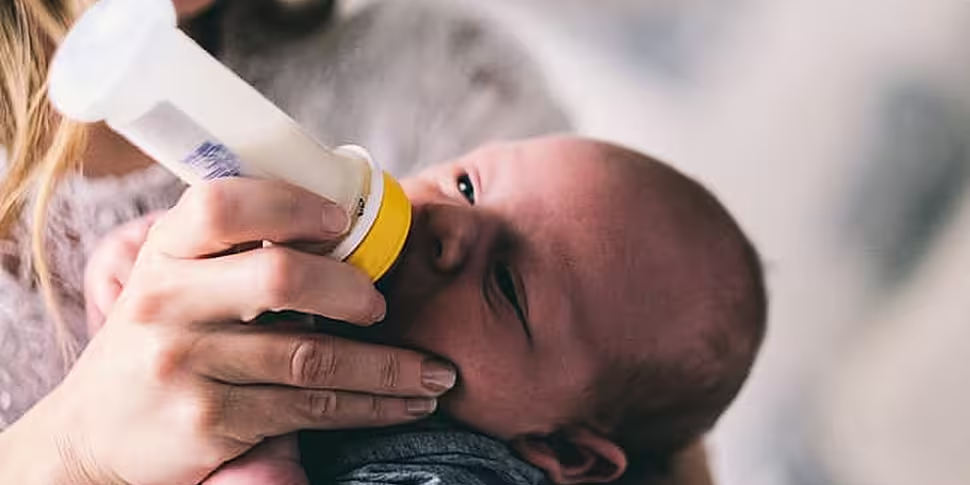
Researchers say changing the way formula is prepared can reduce the amount of particles.
Researchers from Trinity College Dublin have found that babies being fed formula could potentially be ingesting over one million microplastic particles per day.
According to the study, which was published in Nature Food, the particles are released from infant feeding bottles while they are being warmed up and shaken.
The researchers found that around the world, babies consume on average 1,580,000 plastic particles per day while drinking from polypropylene bottles - one of the most commonly produced plastics in the world.
Professor John Boland said his team were "absolutely gobsmacked" at the number of microplastics produced by the baby bottles.
"A study last year by the World Health Organization estimated adults would consume between 300 and 600 microplastics a day - our average values were on the order of a million or millions," he said.
"The last thing we want is to unduly alarm parents, particularly when we don't have sufficient information on the potential consequences of microplastics on infant health.
"We are calling on policy makers, however, to reassess the current guidelines for formula preparation when using plastic infant feeding bottles.
"Crucially, we have found that it is possible to mitigate the risk of ingesting microplastics by changing practices around sterilisation and formula preparation."
Reducing the amount of particles.
When it comes to reducing the amount of micro-plastic particles that could appear in your baby's bottle Professor Bolan says temperature is a key factor.
After sterilizing a bottle in boiling water, rinse it at least three more times in sterilized room temperature water.
To prepare the formula, do so in a nonplastic container with at least 70 degree C water, he explained via Wired.
Let it cool to room temperature, then transfer it to the bottle. That keeps hot water from sloshing around inside the bottle, cutting down on the number of dislodged particles.
“I think the important learning is never, ever, ever use a microwave oven to heat anything with a plastic container,” says Boland.
“Because what happens is you get in fact the local heating of the plastic and the water together, which gives enhanced levels of microplastic generation. And so that combination we think is particularly potent.”













